New Scientist covers the latest developments in science and technology that will impact your world. New Scientist employs and commissions the best writers in their fields from all over the world. Our editorial team provide cutting-edge news, award-winning features and reports, written in concise and clear language that puts discoveries and advances in the context of everyday life today and in the future.
A note from the editor
The race to 100 is often rigged • The odds of becoming a centenarian are better than ever – but we can do even more
New Scientist
Quantum computers get silicon makeover
Covid-19 vaccines’ economic benefits • An estimate of the global health and economic impact of the vaccines against the coronavirus shows they delivered a huge return on investment, finds Michael Le Page
Early Neanderthals hunted ibex on steep mountain slopes
Jupiter is smaller and more squashed than we expected
Analysis Health • Childhood obesity is now more common than undernutrition – what do we do? Policies designed to reduce the consumption of unhealthy foods aren’t working, finds Grace Wade
Ancient toolkit brings us closer to hunter-gatherers
Black hole theorem proved correct • Gravitational wave observations are shedding light on an idea proposed by Stephen Hawking
NASA hasn’t found life on Mars – yet • Fresh evidence could point to the existence of ancient organisms on the Red Planet, but we can’t know for certain without returning samples to Earth, finds Matthew Sparkes
Resistance training may also strengthen your gut microbiome
DNA cassette can store every song ever recorded
Area of brain behind cravings identified
How elements shaped our evolution • Adaptation to local micronutrient levels, once vital, continues to influence populations worldwide
Mysterious cloud on Mars finally has an explanation
Britain’s economy actually thrived after the withdrawal of the Roman Empire
‘Great Migration’ of wildebeest is smaller than we thought
Surprising number of mammals are iridescent
Antibody mix may be universal flu treatment
Polar geoengineering just won’t work • A review of five methods put forward for cooling down the poles or slowing the loss of ice concludes they are all wildly impractical, wouldn’t work, or both, finds Michael Le Page
Exoplanet shows signs of having a habitable atmosphere
Sculpted head may reveal a unique ancient hairstyle
Sustainability over style • A radical idea to standardise packaging across brands could make it far easier for us to recycle and reuse plastic, says Saabira Chaudhuri
This changes everything • In the long run We are still waiting for the retro-futuristic tech envisioned in science fiction stories of years past – including advances in human reproduction, writes Annalee Newitz
Slow escape
Common knowledge • Steven Pinker makes a compelling case that knowing what everyone else knows transforms societies. But Michael Marshall laments his politics
Stopping an AI apocalypse • We must take drastic action before superintelligent AIs wipe out humanity, according to a new book. Jacob Aron isn’t convinced
New Scientist recommends
The sci-fi column • A literary mystery Set in a future where rising seas have swallowed most of the UK, Ian McEwan’s excellent novel What We Can Know follows a scholar on a quest to rediscover a great lost poem, says Emily H. Wilson
Your letters
HOW TO LIVE TO 100
Centenarian boom • More people than ever before are living to 100 and beyond.
‘I’m like an Olympian, but for longevity’ • Tech millionaire turned longevity pioneer Bryan Johnson is going to extremes to reverse the age of his body. What can the...
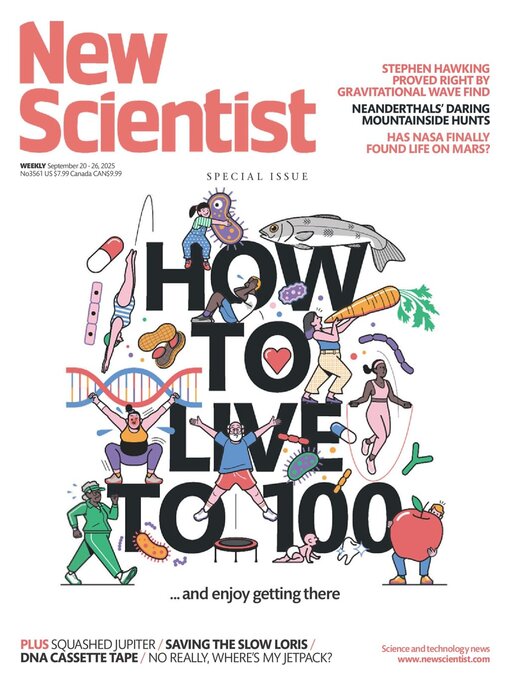
 Feb 28 2026
Feb 28 2026
 Feb 21 2026
Feb 21 2026
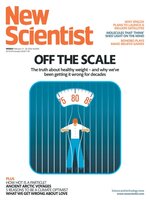 Feb 14 2026
Feb 14 2026
 Feb 07 2026
Feb 07 2026
 Jan 31 2026
Jan 31 2026
 Jan 24 2026
Jan 24 2026
 Jan 17 2026
Jan 17 2026
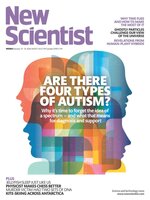 Jan 10 2026
Jan 10 2026
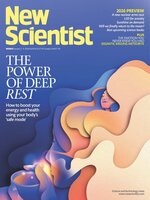 Jan 03 2026
Jan 03 2026
 Dec 27 2025
Dec 27 2025
 13-26 December 2025
13-26 December 2025
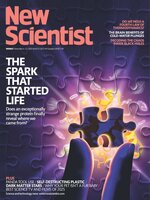 Dec 06 2025
Dec 06 2025
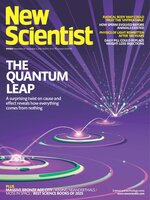 Nov 29 2025
Nov 29 2025
 Nov 22 2025
Nov 22 2025
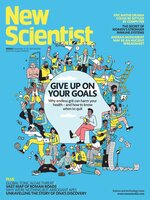 Nov 15 2025
Nov 15 2025
 Nov 08 2025
Nov 08 2025
 Nov 01 2025
Nov 01 2025
 Oct 25 2025
Oct 25 2025
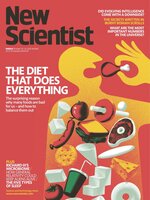 Oct 18 2025
Oct 18 2025
 Oct 11 2025
Oct 11 2025
 Oct 04 2025
Oct 04 2025
 Sep 27 2025
Sep 27 2025
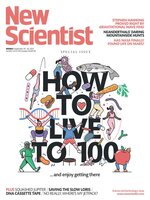 Sep 20 2025
Sep 20 2025
 Sep 13 2025
Sep 13 2025